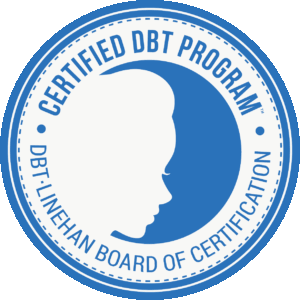Written By: Habeebah Abdus-Salaam, LSW
Emotional development is a fundamental part of growing up. It affects how children understand themselves, relate to others, and respond to life’s challenges. While emotional growth varies by individual, there are common stages that children pass through. Recognizing what’s typical—and what may signal deeper concerns—can empower parents to support their child’s emotional well-being and know when it’s time to seek professional help with therapy for children.

Infancy (0–12 months): Forming Attachments
In the first year of life, emotional development centers around forming secure bonds with caregivers. Babies learn to trust when their physical and emotional needs are met consistently.
Typical emotional behaviors:
- Crying to signal needs
- Calming when held or comforted
- Smiling socially (usually by 6–8 weeks)
- Showing preferences for familiar faces
- Demonstrating distress at loud noises or sudden changes
How parents can support:
- Respond consistently to cries and needs
- Use soothing tones and facial expressions
- Maintain routines to create a sense of safety
When to consider professional help:
- Lack of eye contact or responsiveness by 6 months
- Rarely smiling or expressing joy
- Disinterest in caregivers or failure to seek comfort
These signs may indicate issues with early signs of attachment or developmental challenges.
Toddlerhood (1–3 years): Discovering Emotions and Boundaries
Toddlers are famous for their emotional extremes—and for good reason. This stage is about asserting independence and learning to express and manage emotions.
Typical emotional behaviors:
- Frequent tantrums
- Shifting quickly from joy to frustration
- Strong attachment to parents
- Emerging use of words to express needs (“mine,” “no,” “I do it”)
How parents can support:
- Name and validate your child’s emotions (“You’re upset because your toy broke”)
- Set clear, consistent boundaries with calm responses
- Offer limited choices to foster independence
When to consider professional help:
- Intense, prolonged tantrums beyond age 3
- Aggression toward self or others
- Inability to calm down even with support
- Delays in expressive language or social interaction
These could signal emotional regulation issues, anxiety, or developmental delays.
Preschool Age (3–5 years): Developing Empathy and Social Skills
As language and cognitive skills grow, preschoolers begin to understand that others have feelings, too. Imagination flourishes, and social play becomes a testing ground for emotional learning.
Typical emotional behaviors:
- Expressing affection and empathy
- Beginning to take turns and share
- Playing cooperatively with others
- Asking questions about emotions (“Why are you sad?”)
- Experiencing fears (e.g., dark, monsters, being alone)
How parents can support:
- Use books and stories to talk about feelings
- Model appropriate emotional responses
- Encourage cooperative play and problem-solving
- Maintain consistent routines to reduce anxiety
When to consider professional help:
- Persistent difficulty making friends
- Excessive fears that interfere with daily activities
- Trouble separating from caregivers beyond age 5
- Frequent aggressive outbursts or difficulty following basic instructions.
At this stage, emotional challenges may relate to anxiety, trauma, or early signs of ADHD or autism.
Early School Age (6–8 years): Gaining Self-Control and Confidence
Children at this age begin to manage their emotions with more maturity. They understand social rules better and start forming more complex friendships.
Typical emotional behaviors:
- Talking about feelings more clearly
- Developing empathy and moral understanding
- Feeling pride in accomplishments
- Showing resilience after minor setbacks
- Comparing themselves to peers (which may affect self-esteem)
How parents can support:
- Encourage problem-solving and reflection (“What could you do differently next time?”)
- Support efforts, not just results
- Teach coping skills like deep breathing or journaling
- Create space for open conversations about feelings
When to consider professional help:
- Persistent low self-esteem or self-criticism
- Excessive worry or perfectionism
- Withdrawal from friends or activities
- Ongoing defiance or disruptive behavior at school or home
These may indicate anxiety, depression, or behavior disorders like oppositional defiant disorder (ODD).

Later Childhood (9–12 years): Building Identity and Emotional Insight
This stage is marked by growing self-awareness and emotional complexity. Children are beginning to shape their identity, understand others’ perspectives, and manage peer dynamics.
Typical emotional behaviors:
- Strong interest in peer approval
- Increased sensitivity to criticism
- Abstract thinking about emotions and fairness
- Beginning to manage more complex emotions (guilt, embarrassment)
- Moodiness or frustration, especially around rules
How parents can support:
- Validate their emotional experiences, even if they seem exaggerated
- Encourage healthy friendships and involvement in group activities
- Help them learn from mistakes without shame
- Discuss emotions openly and without judgment
When to consider professional help:
- Sudden changes in mood or behavior
- Persistent sadness, anger, or anxiety
- Social isolation or bullying (as a victim or perpetrator)
- Talk of self-harm or hopelessness
This stage is often when early signs of mood disorders begin to surface. Early intervention can make a significant difference.
Adolescence and Beyond (13+): Emotional Independence and Resilience
Teenagers experience intense emotional shifts as they seek independence and form deeper relationships. Hormonal changes, identity exploration, and life pressures create new challenges.
Typical emotional behaviors:
- Strong emotions tied to identity, social status, or fairness
- Desire for privacy and autonomy
- Questioning of values and authority
- Deepened empathy and concern for justice or global issues
How parents can support:
- Offer a balance of support and independence
- Respect privacy while staying involved
- Provide safe opportunities to discuss difficult topics (relationships, mental health, identity)
- Encourage self-care and stress management techniques
When to consider professional help:
- Signs of depression, anxiety, or suicidal thoughts
- Risk-taking behavior (substance use, self-harm)
- Severe withdrawal or changes in eating/sleeping
- Persistent academic or social struggles
Adolescents benefit from having safe adults to talk to. Professional therapy for children can provide tools to manage their emotional world and reduce long-term mental health risks.
Final Thoughts
Every child’s emotional journey is different, and there’s a wide range of “normal.” Still, knowing the typical stages can help you offer the right support at the right time—and recognize when something may be off track. Trust your instincts. If your child’s emotional struggles are persistent, intense, or affecting daily life, seeking professional guidance is a wise and loving step.
Early support can make a powerful difference. Therapy isn’t a sign that something is wrong—it’s a tool to help your child thrive.
If you’re concerned about your child’s emotional development, consider speaking with a licensed child therapist, pediatrician, or school counselor. You’re not alone, and support from DBT of South Jersey is available.

Supporting Emotional Growth with Therapy for Children in South Jersey
If your child is facing emotional challenges, don’t wait to seek help. Early intervention can make a lasting difference, and therapy for children in South Jersey offers a safe space for healing and growth. Reach out to DBT of South Jersey today to connect with caring professionals dedicated to your child’s well-being. Follow these three simple steps to get started:
- Contact us to book a free consultation with our intake team
- Meet with one of our skilled child therapists
- Start helping your anxious child build their confidence!
Additional Services Offered at DBT of South Jersey
At DBT of South Jersey, we provide specialized therapy for children to support their emotional growth and well-being. Located in Moorestown and Voorhees, our offerings also include trauma-focused therapy, OCD treatment, family and couples counseling, along with holistic healing approaches. Check out our blog for expert advice, actionable tips, and valuable resources on therapy for children and adolescents.
Sources:
https://www.nimh.nih.gov/health/publications/children-and-mental-health




